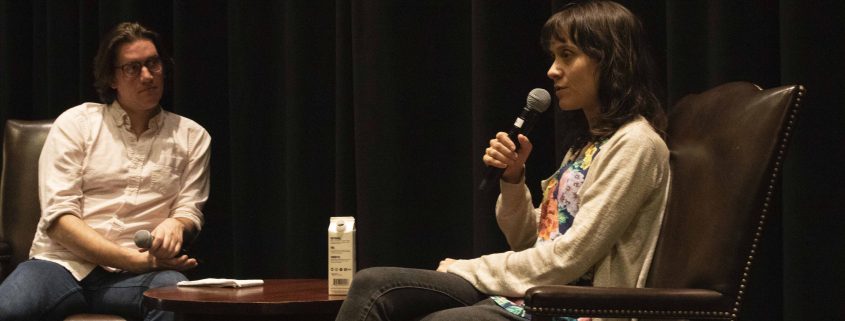‘Knock Down the House’ director talks casting

The 2018 midterm election brought a record number of women running for office, and with that wave came a Netflix documentary written, directed and produced by Rachel Lears.
“Knock Down The House” follows the campaigns of four women running for congressional office in the 2018 midterm election, including the story of Rep. Alexandria Ocasio-Cortez’s upset victory in New York’s 14th Congressional District as she defeated chairman of the House Democratic Caucus Joe Crowley. The documentary follows Cortez, Cori Bush, Amy Vilela and Paula Jean Swearengin’s campaigning efforts, as well as their triumphs and losses along the way.
The School of Cinematic Arts held a special screening for the documentary Tuesday, with a Q&A session featuring Lears. Jessica Burgess, a sophomore majoring in cinema and media studies, said she was thrilled at the opportunity to discuss the filmmaking process and the role of gender in politics with the director herself.
“In such a divisive time, it’s really interesting to watch a journey of these women actually making it and changing the forum and changing the platform of what’s happening in politics,’’ Burgess said. “So I think to watch these women fight for [hope and diversity] can be inspirational.’’
The cast of the film alone is inspirational. All come from incredibly diverse backgrounds, with a waitress in the Bronx, a coal miner’s daughter in West Virginia, a woman in Nevada who lost her daughter to a broken healthcare system and a registered nurse from Missouri who helped those affected in the Ferguson riots in 2014. All of them are linked by one common thread: their determination to fight the establishment.
With such a diverse cast, the theme of intersectionality is evident in the documentary, and Lears succeeds in conveying the message of the importance of diversity in politics. The film highlights grassroots campaigns: none of the four women took money from corporations, building their campaign from the ground up and proving themselves as worthy candidates despite coming from nonpolitical, working-class backgrounds.
“The idea was always to do something that was truly intersectional by showing the intersection of gender not just with race but also with economic issues, and all of their stories really brought forward those themes,” Lears said.
Lears said her team searched for a cast by first reaching out to the Justice Democrats and Brand New Congress, who were on the lookout for working-class individuals who could serve as potential candidates for office.
“We were interested in the idea of solidarity, of people coming together from different backgrounds from different locations in this national project and of course, as filmmakers, we knew there would be these individual arcs of what’s it gonna be like for a regular person to try and transform themselves into a viable candidate,’’ Lears said.
Lears said it took interviewing 24 candidates to get to the final four. The result, she said, is a story of characters with compelling, emotional story arcs.
“These four really jumped out for a few reasons,” Lears said. “One, because they all have really strong personal stories of their motivations for running, and we knew that that would make them compelling to watch, win or lose.”
Being the primary person on set allowed Lears to build intimate relationships with the four women; their candor and vulnerability in the film ultimately became one of the strongest parts of the documentary.
‘’I think as you go through [the campaign] with them the intimacy builds,’’ Lears said. “Going through the election night for each of them even with the different outcomes, that builds intimacy as well because after that, you’ve been through this thing with them that’s one of the most significant things they’ve ever done in their life.’’
Prerika Chawla, a junior majoring in cognitive science, said the movie feels honest and transparent.
“This is their direct voice,” Chawla said. “It’s not coming through a filtered media page or something that a journalist wrote about them. It’s them speaking directly to the audience.”
Lears said she had to establish certain boundaries during production when documenting incredibly emotional moments for the candidates running.
“In the case of Amy, I mean, I took a step back, because I didn’t want the camera in her face,” Lears said about the night of Vilela’s loss. “I got that shot, and then I turned it off and I left.”
Whether it be the loss of a family member, growing up in incredibly unfortunate financial circumstances or growing up in an area where your race automatically puts you at a disadvantage, these women had to endure extreme circumstances to get to where they are, Lears said.
In a scene where Cortez makes a phone call to Vilela, she says, “It’s just the reality that in order for one of us to make it through, 100 of us have to try.”

